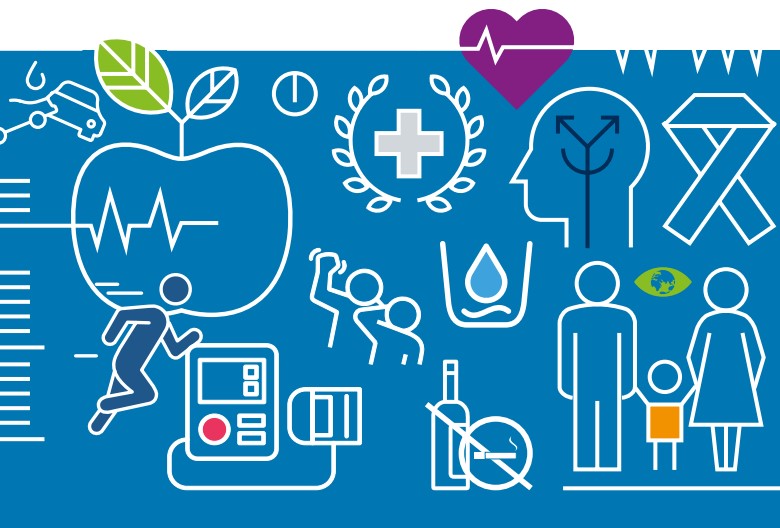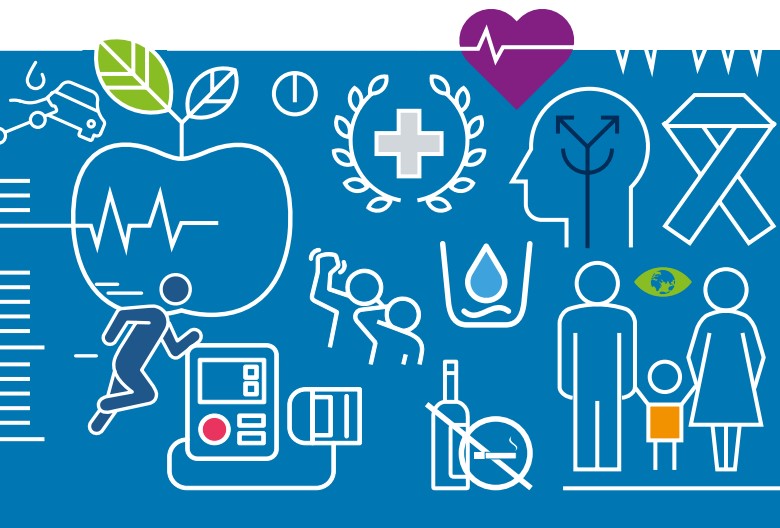Study provides an understanding of health risk factors in South Africa
 Cape Town | The SAMRC’s Second Comparative Risk Assessment study for South Africa (SACRA2) has outlined the trends and risk factors associated with disease and death in the country. The study, conducted by the SAMRC’s Burden of Disease Research Unit (BODRU) in collaboration with some 49 researchers, emphasizes that strengthening evidence-based health promotion and disease prevention plays a pivotal role in altering these trends.
Cape Town | The SAMRC’s Second Comparative Risk Assessment study for South Africa (SACRA2) has outlined the trends and risk factors associated with disease and death in the country. The study, conducted by the SAMRC’s Burden of Disease Research Unit (BODRU) in collaboration with some 49 researchers, emphasizes that strengthening evidence-based health promotion and disease prevention plays a pivotal role in altering these trends.
Although unsafe sex and interpersonal violence remain high on South Africa’s risk profile, key results from the study suggest that non-communicable diseases combined are at an all-time high and are highly likely to overtake unsafe sex and interpersonal violence. “This study digs deeper than the causes of death and disease by helping us to understand the trends and risk factors which are possible for change,” says project lead and BOD Unit Director Professor Debbie Bradshaw.
According to the study, unsafe sex dominates South Africa’s risk factor profile and accounts for the largest proportion (27%) of the 20.6 million disability adjusted life years (DALYs)which were lost in 2012. It also suggests that interpersonal violence and alcohol consumption, in the case of males, have been the second and third leading risk factors for loss of health during the study period.
The remaining risk factor profile depicts two distinct types of risk factors being those that are usually associated with the epidemiological transition, such as tobacco smoking, diabetes, high BMI and high LDL cholesterol, as well as those related to poverty and under-development, such as childhood undernutrition, unsafe water and sanitation and household air pollution from solid fuels.
“We have to reduce the underlying drivers of disease and death if we are to improve the health of South Africans,” says CEO & President of the SAMRC Professor Glenda Gray. “Knowing that this is possible, should strengthen our resolve to ensure that this is accomplished.”
In a commentary made in the South African Medical Journal (SAMJ), Executive Researcher Professor Rachel Jewkes and Professor Gray reflected that there was a need to consolidate and strengthen research on amenable causes of disease and how to prevent them. They added that it was time for the SAMRC to strengthen research on health promotion and disease prevention, with a focus on interpersonal violence prevention, non-communicable diseases and nutrition, alcohol, tobacco and mental health, sexual and reproductive health and rights, and environmental health. “Ultimately, we seek to improve the health of key populations of the elderly, children, adolescents and young people, the disabled, and marginalized populations.”
Furthermore, they reaffirm the SAMRC’s commitment to supporting the national health surveillance system to invest in developing technical capacity to synthesize data and generate estimates imperative to guide policy.
The SAMRC’s SACRA2 was published by the South African Medical Journal as a collection of 15 related articles.
More findings from the study can be read in a Policy Brief developed by the BODRU team.
Read more about the 2nd South African Risk Assessment Study (SACRA2)
For more information:
Professor Debbie Bradshaw
Chief Specialist Scientist
Tel: (021) 938 – 0944
Email: debbie.bradshaw@mrc.ac.za

